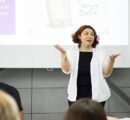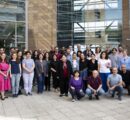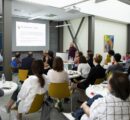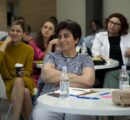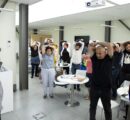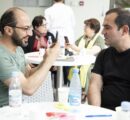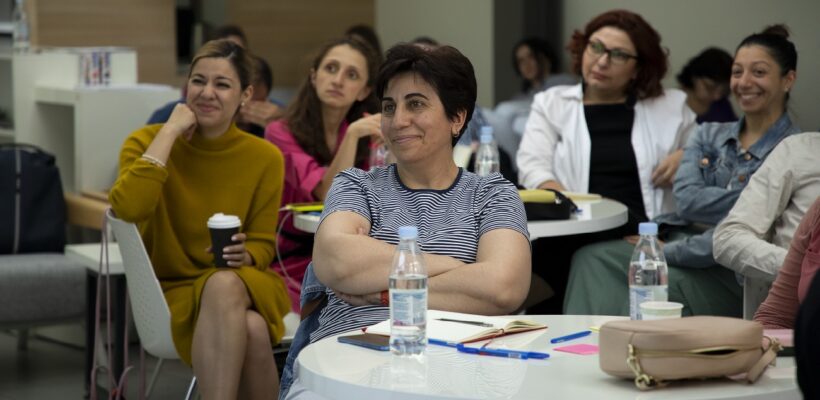
Faculty Gear Up for the Upcoming Academic Year
3 min readYEREVAN, Armenia — On May 24, over 60 faculty members of the American University of Armenia (AUA) General Education program assembled to review and wrap up the spring semester and prepare for the 2023-2024 academic year.
Faculty presentations and discussions at the gathering covered various topics, including active learning strategies, critical reading, and artificial intelligence (AI) in the classroom.
The day started with reflections on the spring semester.
“When we practice what we teach, students appreciate that learning isn’t a perfect trajectory,” noted lecturer Vicken Derderian, who teaches Design Thinking. “In my class, failing is a part of the learning process. As instructors, we sometimes fail when we experiment with a new teaching approach, and things do not always go as well as we had hoped or planned. For me, discussing with colleagues what did and didn’t work was just as inspiring as thinking about new strategies for the fall.”
Faculty members reviewed how technological developments had created new challenges for students and faculty. Several of them shared how they had utilized AI and how that had impacted their classes. Lecturer Steven Donatelle shared that students in his course on Great Books spoke extensively about AI, but the use of the technology was not required in any assignment.
In turn, students in the Scientific Method and Critical Thinking course taught by lecturer David Davidian analyzed various AI outputs for completeness as well as accuracy. Office of Institutional Research and Assessment Director Brent Anders shared ways to utilize AI to scaffold assignments to build learning.
Faculty members also shared that some students struggled with critical reading in volume and depth. Dr. Hasmik Khalapyan shared her research based strategy of utilizing short quizzes in critical thinking to help students focus on the main ideas in the text. Dr. Vahram Danielyan outlined how he encourages students in his Armenian Language and Literature course to use the online tool Hypothesis for critical reading. And lecturer Suzanne Daghlian explained her approach to encouraging freshman students to write reading notes, examine the origin of texts, and capture the “big fat main idea.”
Advances in technology and the myriad responsibilities that undergraduate students face, including the growing number of students who also work, have posed new challenges. Lecturer Anna Gevorgyan shared several active learning strategies that promote critical thinking, deep learning, and synthesizing. “By employing various active learning strategies, instructors ensure that students are meaningfully engaged in the learning process and develop their critical and creative thinking,” noted Gevorgyan. “Active learning also provides students with opportunities to get feedback on how well they have understood and what to focus on or pay more attention to.”
General Education faculty also spent time examining how best to improve course content and student learning in the fall.
“Wrapping up the semester with a day of reflection, thinking, and sharing with AUA’s diverse faculty is a great way to focus on continuing to enhance teaching and improve student learning,” stated Dr. Sharistan Melkonian, dean of general education. “Thinking together is the best way to continue to provide students with engaging opportunities to develop the skills and knowledge necessary to address the complex problems they will face in a changing world.”
Founded in 1991, the American University of Armenia (AUA) is a private, independent university located in Yerevan, Armenia, affiliated with the University of California, and accredited by the WASC Senior College and University Commission in the United States. AUA provides local and international students with Western-style education through top-quality undergraduate, graduate, and certificate programs, promotes research and innovation, encourages civic engagement and community service, and fosters democratic values.

